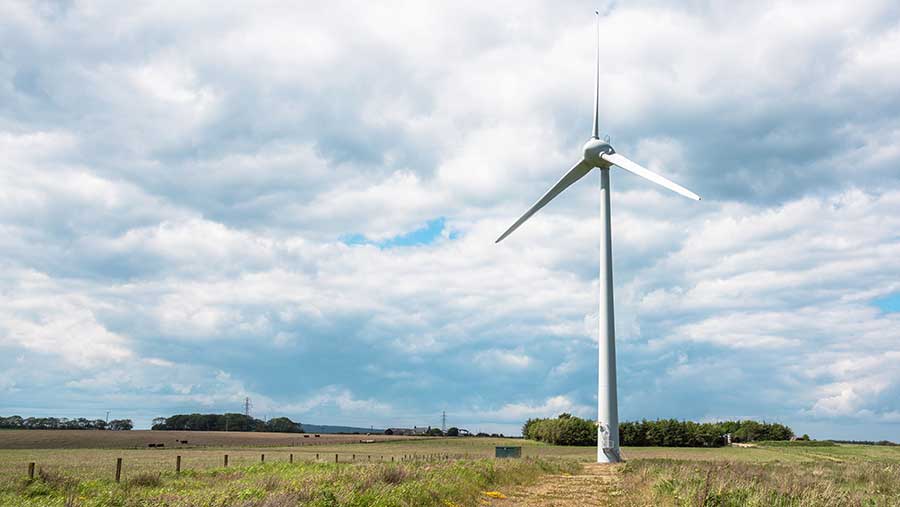Lack of capacity holding back on-farm green energy says NFUS
 © NFU Scotland
© NFU Scotland A lack of capacity in the UK National Electricity grid – along with unrealistically high connection charges – is stymieing the efforts of Scotland’s farmers to become more self-sufficient in terms of power generation.
And, according to NFU Scotland (NFUS), planning permission restrictions are also hampering many small-scale proposals which could help the Scottish and other UK devolved governments deliver their renewable energy targets.
Union president Martin Kennedy said that many farmers had been looking to invest in renewable schemes to gain control of runaway power bills – but problems dealing with power companies and gaining connections to the grid were rendering many projects unviable.
See also: Top tips for developing renewable energy schemes
“Farmers are being held back despite wanting to play an important role in delivering more electricity from renewable sources,” said Mr Kennedy.
“Not only are there few financial incentives to become involved, but there are also considerable disincentives in the form of high costs for connection and difficulties with gaining planning permission.
“On farm energy and agri-renewables offer exciting opportunities for the industry, with the potential to support a Just Transition, boosting both the economy and energy efficiency in rural Scotland as well as supporting farms to become carbon-neutral.
“But many of those looking to produce such energy are being stifled,” he added.
The union’s climate change policy manager, Kate Hopper, said feedback from members confirmed that rules and regulations around planning were limiting the contribution which the sector could make towards the nation’s energy supplies.
“To move forward the Scottish government must resolve the significant issues that farmers and crofters are facing and the barriers to installation of farm renewables.”
Green hydrogen project
NFUS, along with the country’s agricultural co-operative umbrella group, the Scottish Agricultural Organisation Society, has been instrumental in setting up a “green hydrogen” initiative, which is viewed as one of the key solutions to decarbonising farms and rural communities.
“Furthermore, the possibility of producing ammonia from the hydrogen created in renewable projects could be used as the basis for fertiliser production – and seed-funding for such a project is being sought,” said Mr Kennedy.
By 2030, the Scottish government aims to generate 50% of Scotland’s overall energy consumption from renewable sources, and by 2050 to have decarbonised energy systems almost completely. It hopes to achieve this through a range of options, including making it easier to invest in local and small-scale renewables.
Farming ‘must be recognised in energy support scheme’
NFU Scotland’s policy director Jonnie Hall revealed that the union is also lobbying hard to have the key importance of the agricultural sector recognised as Westminster reviewed its energy scheme.
He said that while the current support for business energy requirements was welcome, uncertainty hung over the situation after March 31.
“We are pressing home the fact that the agri-food sector is among some of the hardest hit by spiralling energy costs, with many in the industry facing business-breaking bills if support is withdrawn.”
He said Westminster needed to recognise that food production was critical to the national infrastructure as it had done during the Covid restrictions – and take steps to secure all links in the supply chain.
